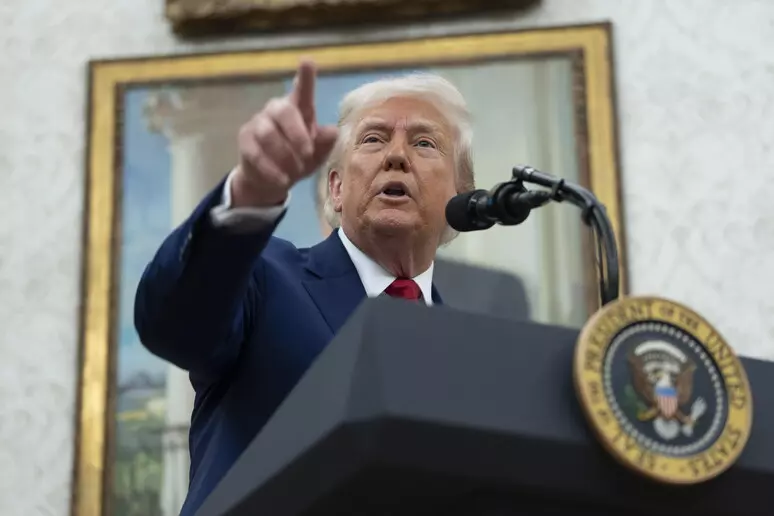Donald Trump announced that he will make a decision “within two weeks” on whether the United States will participate in the Israeli attack on Iran. This was made known by White House spokeswoman Karoline Leavitt, reading a message written by the president during a press conference. “Based on the fact that there’s a substantial chance of negotiations that may or may not take place with Iran in the near future, I will make my decision whether or not to go within the next two weeks.”
The White House maintains that Iran has never been as close as it is now to acquiring a nuclear weapon. Trump, while declaring himself opposed to “endless wars” in the Middle East, has reiterated several times that he will prevent Tehran from becoming a nuclear power at all costs. According to ABC News, the president has reportedly already approved plans for the attack. The two weeks would be the last concession to reopen negotiations before launching the offensive
According to Leavitt, Steve Witkoff, the president’s special envoy for the Middle East, has been in contact with Iranian officials, but to no avail: Iran abandoned talks with the United States after the Israeli air campaign began.
Meanwhile, the war on the ground continues. The Israeli military has launched a new wave of attacks against Iranian targets, including a nuclear complex. Defense Minister Israel Katz promised an intensification of the offensive, justifying it as a response to the recent Iranian missile barrage that also hit a hospital in southern Israel.
On the U.S. home front, the debate is increasingly heated. The possibility of U.S. intervention has laid bare the deep divisions within the Republican Party and, in particular, the MAGA world. Trump has built his political leadership on a promise to bring soldiers home and dismantle the “stupid endless wars,” but today he finds himself caught between two fires: on the one hand, the isolationist wing of his movement, with figures like Steve Bannon and Tucker Carlson warning him against disastrous involvement; on the other, establishment hawks and some big donors urging him to act firmly against Iran.
The Wall Street Journal points out how the debate has become heated even among the best-known pro-Trump influencers on social media. There are those who accuse the White House of wanting to drag the country into a new conflict to distract public opinion from domestic problems and those who call for a decisive strike against the regime in Tehran.
Polls perfectly reflect this split. According to a Washington Post survey, only one in four Americans favor military intervention against Iran, while 45 percent say they are opposed and the rest are undecided. Opposition is even stronger among independent and young voters. A YouGov poll shows that even among Trump voters, opposition far outweighs support. However, a majority of the MAGA movement remains in favor of intervention, driven by anti-Iranian sentiments and a desire to show military strength.
Meanwhile, as the president stalls, the United States is preparing for every scenario. Military air traffic from U.S. bases in England and Qatar has increased significantly in recent days, with cargo flights and reconnaissance aircraft heading to the Middle East. The USS Gerald R. Ford aircraft carrier strike group has been deployed in the central Mediterranean, while other naval units have been spotted maneuvering off Crete and Cyprus. The Pentagon speaks of “precautionary measures to protect American assets,” but it is clear that Washington is preparing a military response should Trump decide to act.
On the diplomatic level, Europe is also trying to move. After days of silence and marginalization, the Europeans are trying to regain a role in the negotiations, with meetings between Iranian officials and European Union representatives scheduled in Geneva for Friday. It would be the first formal contact since the beginning of the conflict. The goal is to convince Tehran to resume nuclear talks, although by now the chances of success seem slim.
In an increasingly tense climate, Trump faces a choice that may redefine not only his foreign policy but also the future of his own movement. Participating in a new war could mean breaking with part of his base; staying out, he loses international credibility and domestic politics. But with fighter jets in the air and aircraft carriers at sea, the time for ambivalence is coming to an end.











